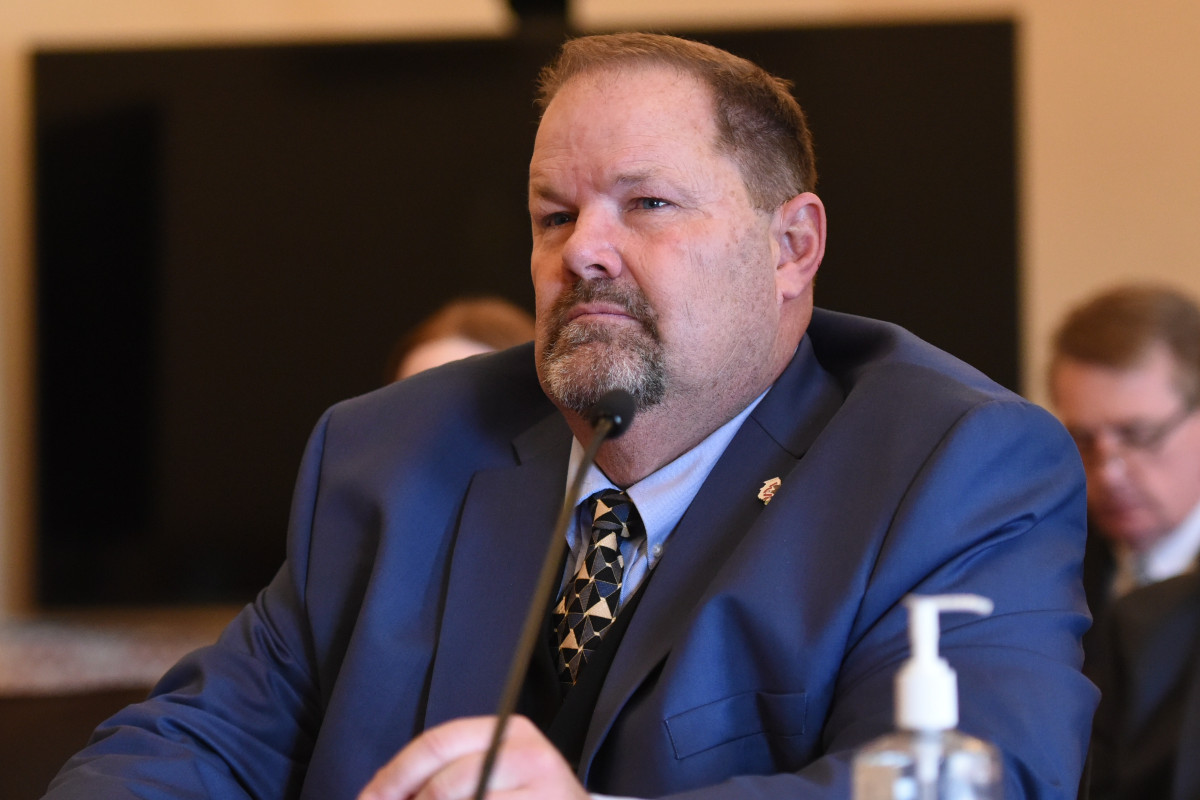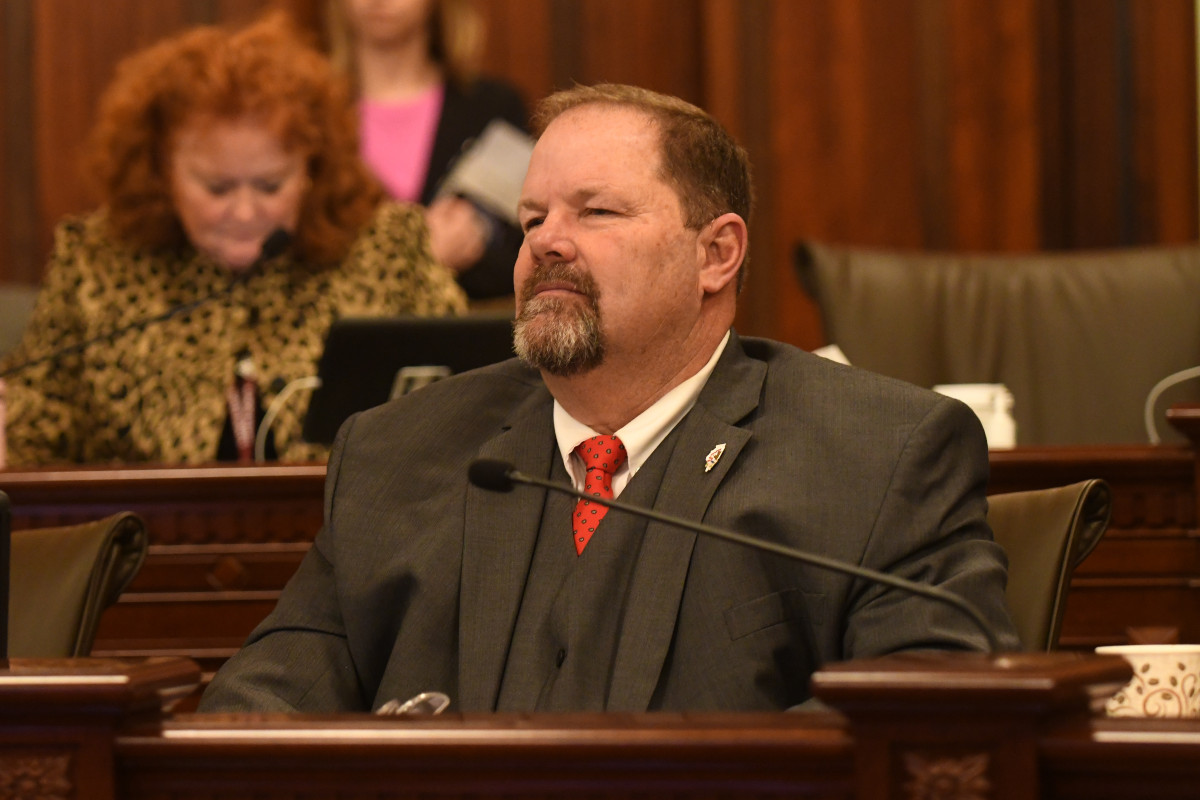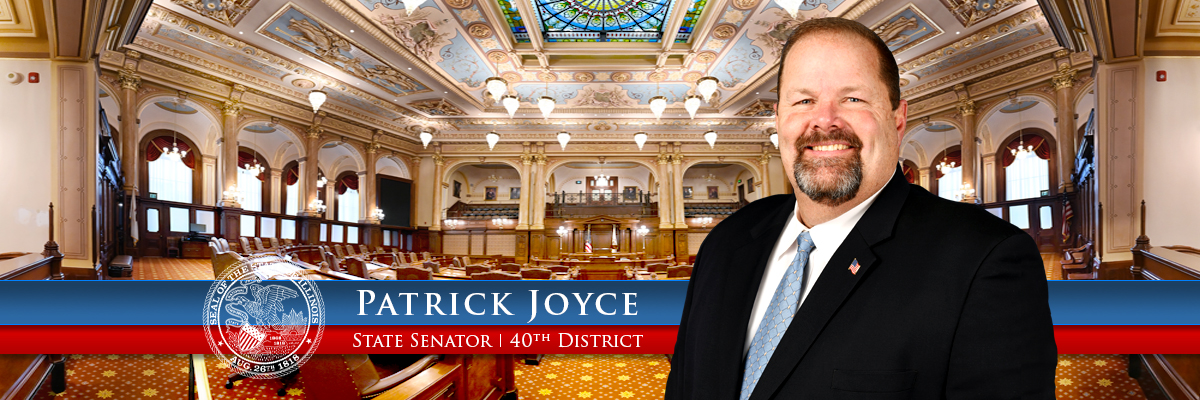- Details
- Category: Press Releases

KANKAKEE - To help job seekers find employment, State Senator Patrick Joyce is encouraging people to apply for seasonal conservation work at Kankakee River State Park in Bourbonnais.
“As the weather is warming up, we see a need for more workers in our state parks,” said Joyce (D-Essex). “This is a great opportunity for local residents or college students to take advantage of temporary work, while working in a beautiful natural environment.”
Conservation workers perform routine maintenance and custodial duties, such as mowing, landscaping, painting, cleaning, loading and unloading vehicles, cutting firewood and more. Other responsibilities include assisting in preparing locations for hunting and fishing, preparing sites for programs, assisting in the care of cover crops and food plots, maintaining tools and equipment, and performing basic vehicle maintenance.
Read more: Joyce encourages job seekers to apply for seasonal conservation work
- Details
- Category: Press Releases
 SPRINGFIELD – State Senator Patrick Joyce co-sponsored a measure that would increase renewable energy procurement and promote environmental conservations by adding a framework to the Illinois Power Agency Act.
SPRINGFIELD – State Senator Patrick Joyce co-sponsored a measure that would increase renewable energy procurement and promote environmental conservations by adding a framework to the Illinois Power Agency Act.
“Hydropower is a clean and reliable energy source that has the potential to help Illinois meet its renewable energy goals,” said Joyce (D-Essex). “However, we need to make sure that we are not encouraging the construction of new dams, because this can lead to negative impacts on our environment and natural resources.”
Under this legislation, the Illinois Power Agency would be required to procure a percentage of its renewable energy credits from hydropower dams. This would help increase the use of this renewable energy source, while also promoting environmental conservation by using dams that already exist.
This initiative is aimed to support hydropower dams across the state, especially the Kankakee Hydropower Dam and the Wilmington Dam, located in Joyce’s district.
“Renewable energy is critical to protecting our planet,” said Joyce. “This legislation can help increase the use of this clean energy source that also promotes conservation and efforts to protect our environment altogether.”
Senate Bill 1474 passed the Senate Energy and Public Utilities Committee on Thursday and awaits further consideration before the full Senate.
- Details
- Category: Press Releases
 SPRINGFIELD – State Senator Patrick Joyce advanced a measure on Wednesday that would bring more fire prevention education to children across the state.
SPRINGFIELD – State Senator Patrick Joyce advanced a measure on Wednesday that would bring more fire prevention education to children across the state.
“With the right education, accidental fires are preventable,” said Joyce (D-Essex). “We must provide insight and proper education so children will be knowledgeable about the damage that can come from fires and provide them with the tools to make responsible decisions.”
This legislation would create positions of certified youth firesetter interventionists in the Division of Arson Investigation within the Office of the State Fire Marshal.
These positions would help local authorities in stressing the importance of fire safety. They would conduct firesetter interventions that would work closely with families, schools and other organizations to provide education, support and guidance to children.
”Fire prevention education saves lives,” said Joyce. “By providing targeted intervention and prevention strategies, we can help protect public safety and prevent future incidents of firesetting behavior in our communities.”
Senate Bill 1421 advanced through the Senate Behavioral and Mental Health Committee and awaits further consideration before the full Senate.
- Details
- Category: Press Releases
 KANKAKEE- With support from State Senator Patrick Joyce, the Illinois Department of Natural Resources is distributing nearly $3 million in grant funds to multiple communities in the 40th District as part of the Open Space Land Acquisition and Development grant program.
KANKAKEE- With support from State Senator Patrick Joyce, the Illinois Department of Natural Resources is distributing nearly $3 million in grant funds to multiple communities in the 40th District as part of the Open Space Land Acquisition and Development grant program.
“The funds from the OSLAD grants are a great resource for our communities so improvements can be made to parks and other outdoor spaces to continue to make them useful for folks,” said Joyce (D-Essex). “Not only does this investment help keep our outdoor areas appealing, it continues to build up and maintain spaces for people to visit for safe, public outdoor recreation.”
A total of $60 million in state grants are being awarded for 118 local park projects throughout Illinois to help communities acquire land and develop recreational opportunities. The grants represent the largest round of Open Space Land Acquisition and Development grants in the 36-year history of the program.
Read more: Joyce announces nearly $3 million in local OSLAD grants
More Articles …
Page 26 of 90



